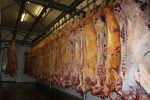Two years ago, the Zambian government banned the felling and transport of a tree known locally as mukula – Pterocarpus chrysothrix, a relative of rosewood – in a bid to curb its rapid loss fuelled by growing demand in Asia. The wood is highly prized on the international market, making it one of the trees most heavily logged by illegal harvesters.
Since August 2021 there have been no timber exports from Zambia, due to the ban the new government imposed. The claim was that they needed to audit the sector to remove illegal practices and bad actors. This action had a reducing impact on corridor volumes for the first and second quarters of 2022. However, with effect from May 2022, the government announced the lifting of the export ban on timber exports, this ban has now permitted the affected in the industry to start obtaining timber export licenses.
This provides the Port of Walvis Bay an opportunity to handle in excess of 600 x 40 foot long containers of timber in the next six months and double the quantity in the next 12 months. Timber has already started flowing into Walvis Bay by two notable companies; Maiba tree enterprises and Sikale woods.
More companies will follow suit as the process of issuing timber export licenses is slow currently due to strict measures the Zambian government has instituted. Between 2001 and 2014, Zambia lost more than 1 million hectares – an area roughly the size of the Republic of Lebanon in western Asia of three types of Pterocarpus trees, according to the Convention on International Trade in Endangered Species of Wild Fauna and Flora (CITES).
Before the timber ban, harvesters needed a license to cut trees, which specified the location, tree species and estimated fees to be paid to the authorities. But because of the ever-growing international demand for timber, together with the high prices of the wood fetches, most harvesters have been felling the forests without a license and exporting them illegally to Asia.










